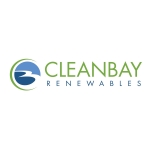
CleanBay Renewables Commends California Air Resources Board for Inclusion of Nitrous Oxide Emissions in New Plan to Curb Greenhouse Gasses
ANNAPOLIS, Md.–(BUSINESS WIRE)–The California Air Resources Board (CARB) released its new Draft 2022 Scoping Plan Update, which illustrates a path to carbon neutrality by 2045. The Draft Scoping Plan is the first of its kind to name nitrous oxide (N2O) emissions as a serious climate threat and signals an important shift toward developing broader and more effective strategies to fight climate change.
“To meet our climate goals, reduction of all greenhouse gas emissions, including N2O, are of paramount importance,” said Thomas Spangler, CleanBay Renewables Executive Chairman. “CARB’s attention to often overlooked N2O emissions in the new Scoping Plan, in addition to their significant emphasis on Natural and Working Lands, sets a global precedent to increase focus on N2O emissions in climate plans and policies moving forward.”
N2O emissions are 300 times more potent than carbon dioxide, destroy the ozone layer, and can remain in the atmosphere for 100 years. Since 1980, human N2O emissions have increased by 30%, largely coming from sources including fuel combustion, industrial processes, wastewater management, and agriculture.
“CleanBay Renewables has long been an advocate for climate plans to include N2O emissions and we strive to provide immediate solutions to address this major climate threat,” said Donal Buckley, CEO of CleanBay Renewables. “We can only meet our climate goals with a concerted effort on all fronts and California’s Draft Scoping Plan serves as a catalyst for informed action against climate change worldwide.”
CleanBay Renewable’s California subsidiary, AgLand Renewables, is helping resolve pressing environmental and energy challenges facing California food and agricultural producers. By converting poultry litter into renewable fuel and controlled-release fertilizer, AgLand’s bioconversion facilities will help significantly (1) reduce greenhouse gas emissions, focusing on N2O emissions, (2) improve soil health, (3) mitigate water quality impacts, and (4) generate full-time, living-wage jobs in communities throughout the Central Valley.
The Scoping Plan Update is now open for a 45-day public review and will be presented to CARB at their June 23rd Board meeting. After review, CARB staff intend to bring the Scoping Plan to the Board for final approval in November 2022.
About CleanBay Renewables Inc.
CleanBay is an enviro-tech company founded in 2013 and focused on the sustainable management of waste through anaerobic digestion and nutrient recovery technologies which produce renewable natural gas and natural, controlled-release fertilizer. The company’s first bioconversion facility will be located in Maryland, and the company is actively developing sites for future facilities on the Delmarva Peninsula, the Southeast, and California. CleanBay’s powerful solution to reduce air, soil, and water pollution is sustained by a robust economic model that provides businesses with an opportunity to offset their CO2 emissions, local farmers with an alternative use for their poultry litter, and a controlled-release fertilizer to increase food production and support healthy soils.
For more information, visit https://cleanbayrenewables.com.
Contacts
Andy Hallmark
Director of Corporate Communications
CleanBay Renewables


